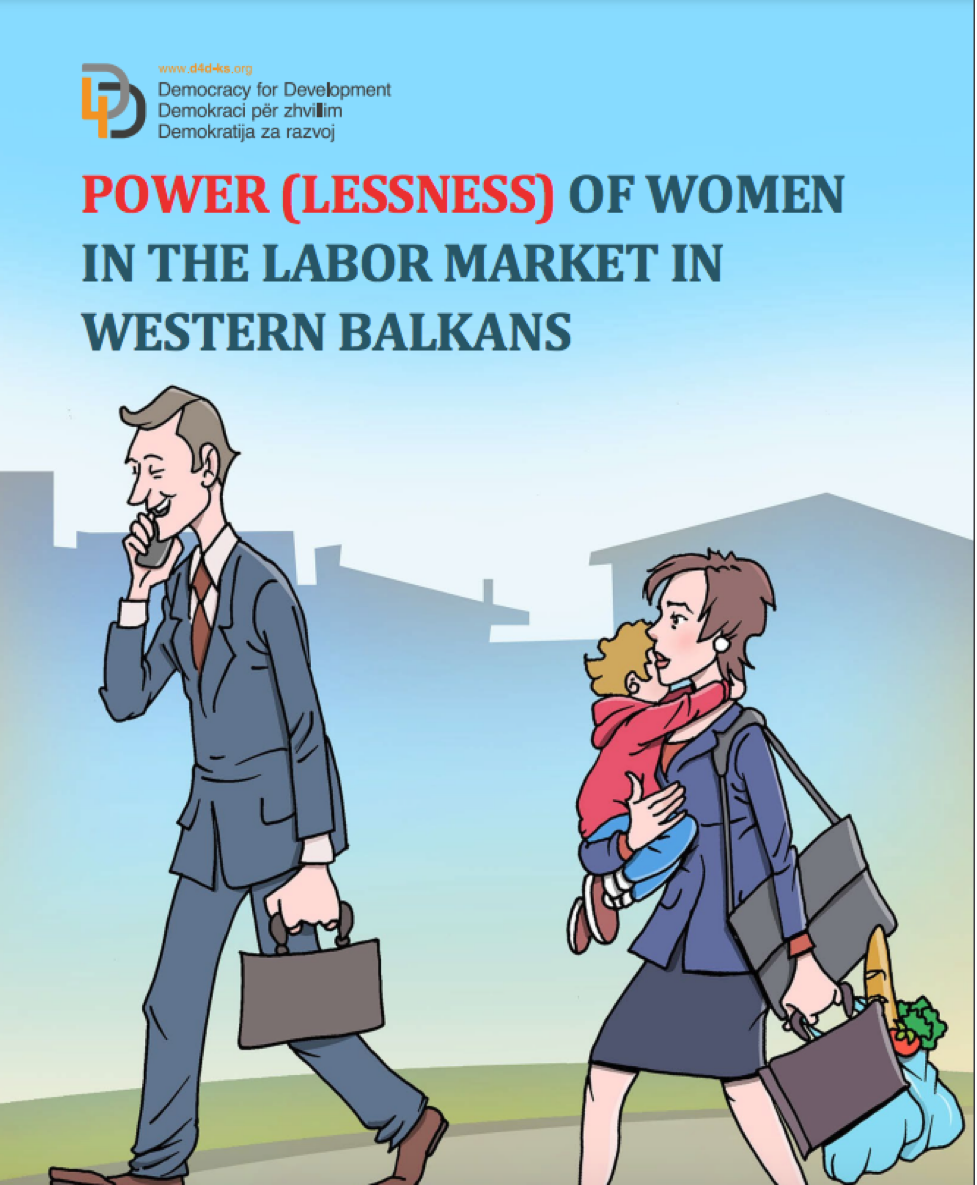Gender inequality is present in all societies in the Western Balkans, including the Serbian one, and is rooted in the social structure and traditional division of labor. Addressing gender inequality is inextricably linked to economic progress, social cohesion and democratic progress, which testifies to its importance and value. Bearing all that in mind, we conducted research on the topic of economic (dis)power of women on the labor market in Serbia, which is part of a comprehensive study Economic (dis)power of women on the labor market in the Western Balkans.
The publication presents a regional comparison of the labor market and attitudes towards women in Serbia, Albania, Montenegro, North Macedonia and Kosovo. Using a comparative approach, this research contains an analysis of the legislative framework, the current state of women’s participation in the labor market, social factors that affect women’s participation in the labor market, but also conclusions and recommendations in the mentioned countries of the Western Balkans.
“In Serbia, traditional folk stereotypes still have a significant impact on the employment of women and lead to discrimination in the labor market.” Comprehensive programs and only the support of relevant institutions are needed in order to improve the position of women on the labor market in Serbia.”
The research showed that there is a high level of similarity between the challenges and obstacles faced by women in the labor market, that is, when they re-enter the labor market in the countries of the Western Balkans. Women continue to face obstacles and challenges arising from society, but also as a result of the lack of an adequate legislative framework, ie its proper implementation.
You can find the publication at the link:
https://d4d-ks.org/vp-content/uploads/2022/11/FINAL_Punimi_SRB_02.pdf
The publication was originally published on the website of organization Democracy for Development (D4D) https://d4d-ks.org/en/home-en/













